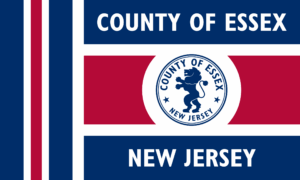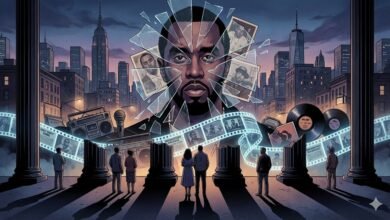
The New Redline: Bridging the Digital Divide
In the 21st century, a lack of internet and computer access is a form of modern-day redlining, creating barriers to education, employment, and economic opportunity. This digital divide is a stark reality in many of North Jersey’s Black and brown communities.
In cities like Newark and Paterson, the gap is particularly pronounced. Approximately 14% of Black households in New Jersey lack access to both the internet and a computer, compared to just 9% of white households. In Newark, nearly a quarter of all households are without internet access. When the pandemic forced schools online, the impact was devastating. In Paterson, most of the district’s 29,000 students were sent home with paper packets because they had no way to learn online, a situation that threatened to widen the academic achievement gap for Black and Hispanic students.
However, there is a powerful story of community-led solutions. In Newark, Mayor Ras Baraka’s administration has been named a “Digital Inclusion Trailblazer” for its aggressive efforts to close this gap. A key initiative involves a partnership with the Newark Housing Authority and private companies, including the Black-owned, Newark-based telecom company
Teknogrid. This program doesn’t just provide affordable internet (as low as $15/month) to over 1,600 public housing units; it also trains and hires city residents for the installation jobs, turning a problem into an opportunity for wealth creation. As Mayor Baraka stated, “we not only continued bridging the digital divide, but also the wealth gap”.
Building Our Own Silicon Valley: The Black Tech Ecosystem

While the digital divide presents a challenge, North Jersey—and Newark in particular—is rapidly becoming a hub for Black tech entrepreneurship and innovation. The narrative here is one of ownership and building our own tables, rather than waiting for a seat at someone else’s.
Institutions like Rutgers’ Center for Urban Entrepreneurship & Economic Development (CUEED) are foundational, running programs like the Urban Tech Accelerator to provide training, mentorship, and potential funding to equity-driven founders. This local groundwork is attracting national attention.
AFROTECH™, a major platform for Black tech professionals, is bringing its AFROTECH™ Executive event back to Newark to “spotlight how technology drives equity, economic growth, and community transformation”.
This growing ecosystem is producing innovative, Black-owned companies. A prime example is MoCaFi (Mobility Capital Finance), a Newark-based fintech startup founded by Wole Coaxum. MoCaFi is explicitly designed to combat the racial wealth gap by providing accessible digital banking tools to underserved communities. The company has partnered with cities like Paterson and Newark on guaranteed income pilot programs, demonstrating how Black-owned tech can be a direct tool for economic justice.
Tech-Fueled Displacement: Gentrification’s Digital Edge
The rise of a tech hub carries a significant risk: gentrification. As cities like Jersey City and Newark become more attractive to high-earning tech professionals, the subsequent boom in luxury development can displace the very communities that gave these cities their cultural identity.
A recent Rutgers-Newark report identified this alarming trend, noting that both Jersey City and Paterson have seen a significant decrease in their Black populations over the last decade. Jersey City, now one of the most expensive rental markets in the nation, is described as a “fully gentrified place” where population growth is driven by affluent newcomers commuting to New York. This process is what some longtime residents call “violent displacement, masked as ‘development'”.
The tech industry acts as an accelerant. High-tech firms attract a high-skilled, high-earning workforce that can outbid longtime residents for housing, driving up rents and property taxes. The result is that the economic benefits of a tech boom often flow to new, wealthier residents, while the costs—displacement and cultural erasure—are borne by the existing Black and brown working-class communities.
The Watchful Eye: “Smart Cities” and the Cost of Safety
As cities embrace technology for public services, the “smart city” concept brings with it serious concerns about surveillance and civil rights. In Newark, the “Citizen Virtual Patrol” program, which gives the public access to a live feed of dozens of surveillance cameras around the city, has drawn sharp criticism from civil rights advocates.
While framed by the city as a “block watch on steroids” to deter crime, the ACLU of New Jersey warns that it amounts to a “mass surveillance scheme” that could lead to racial profiling and the “criminalization of everyday life”. The concern is that untrained civilians, watching from their computers, could misinterpret actions and target their neighbors, particularly in a city with a history of unconstitutional police stops. As one professor noted, this can lead to communities being treated “like outlaws in their own community,” eroding the very trust between residents and law enforcement that the city claims to be building.
Coding the Future: The Push for Black STEM Talent
To ensure the Black community is not just a consumer of technology but a creator and owner, a robust pipeline of talent is essential. Across North Jersey, particularly in Essex County, organizations are focused on providing STEM and STEAM (Science, Technology, Engineering, Arts, and Math) education to Black youth.
- The Urban League of Essex County’s Tech House and Newark Kids Code program introduce underrepresented youth to programming, AI, and design thinking, partnering with companies like Audible for “Tech Talks”.
- JerseySTEM is an organization specifically focused on providing STEM education to middle school girls in underrepresented communities across the state.
- The Essex County Donald M. Payne, Sr. School of Technology, named for New Jersey’s first Black Congressman, is a state-of-the-art facility in Newark’s West Ward offering robust programs in robotics, music technology, and computer science.
These initiatives are critical for closing the opportunity gap and ensuring that the next generation of tech innovators, entrepreneurs, and leaders looks like the communities they serve.








One Comment